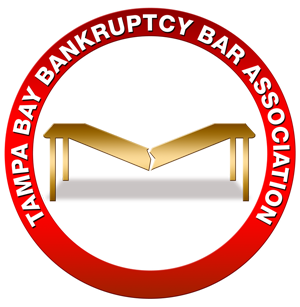By Alexander Maza
St. Thomas University College of Law Student, J.D. Candidate 2023, and Federal Judicial Intern for the Tampa Division of the United States Bankruptcy Court for the Middle District of Florida
Do communications with an accountant acting as an agent of a client or attorney fall under the attorney-client privilege under federal law for federal law claims? The short answer is that certain accountant-client communications may be protected under the attorney-client
privilege if the communications are used to further the legal advice given by counsel to the client.
Federal common law provides the applicable law regarding privilege in general unless the U.S. Constitution, a federal statute, or a Supreme Court decision state otherwise.1 The Federal Rules of Evidence provide that attorney-client privilege is “the protection
that applicable law provides for confidential attorney-client communications.”2 The Supreme Court has held that the accountant-client privilege does not exist under federal law.3 However, “in a civil case, state law governs privilege regarding a claim or defense for which state law supplies the rule of decision.”4 The Florida Evidence Code provides for the accountant-client privilege.5 Therefore, while the accountant-client privilege does not
apply to a federal claim tried in federal court, it does apply to a claim under Florida law tried in federal court.6
But there may be another way to protect accountant communications in the trial of a federal claim in federal court. In United States v. Kovel,7 the Second Circuit held
that an accountant working with a lawyer and a client to interpret accounting concepts so the lawyer may provide more effective legal advice does not destroy attorney-client privilege. “The attorney-client privilege may extend to communications with third parties who have been engaged to assist the attorney in providing legal advice.”8 “‘The privilege must include all the persons who act as the attorney’s agents.’”9
“[Kovel] recognized that the inclusion of a third party in attorney-client communications does not destroy the privilege if the purpose of the third party’s participation is to improve the comprehension of the communications between attorney and client.”10 “Attorney-client privilege may also extend to third party communications if said party is “‘acting as agent’ of the client.”11 With these principles in mind, although there is no accountant-client privilege for federal claims, it appears that under limited circumstances an accountant and client communications might be protected under attorney-client
privilege. In Kovel, the Second Circuit seemed to limit this extension to an accountant interpreting accounting concepts to the attorney for the purpose of better communication between an attorney and their common client. Absent a provision explicitly stating
the accountant-interpreting concept in the federal Constitution, a federal statute, or in a Supreme Court decision, the Federal Rules of Evidence establish that federal common law governs. Because federal common law governs, some Circuit Courts of Appeals have interpreted that third party communications in furtherance of legal advice or acting as an agent of the client or attorney are protected by attorney-client privilege.12
At first glance, the principal of account-client communications falling under attorney-client privilege seems to contradict the precept that there is no accountant-client
privilege under federal law for federal claims. However, a third-party communication in furtherance of legal advice appears to provide a workaround or exception. If an attorney’s agent or a client’s agent is an accountant who fosters communication between the
attorney and the client, then whatever the accountant does for legal advice purposes is arguably protected under the attorney-client privilege.
1 Fed. R. Evid. 501
2 Fed. R. Evid. 502(g)(1).
3 Couch v. U.S., 409 U.S. 322, 335 (1973).
4 Id.
5 See §90.5055, Fla. Stat.
6 See, e.g., Gatti v. Goodman, No. 2:16-cv-728-FtM-29CM, 2017 WL 9613963 at *3 (M.D. Fla. Nov. 13, 2017).
7 6 United States v. Kovel, 296 F.2d 918, 922-923 (2d Cir. 1961).
8 U.S. v. Richey, 632 F. 3d 559, 566 (9th Cir. 2011); accord Lluberes v. Uncommon Prods., LLC, 663 F.3d 6, 24 (1st Cir. 2011) (citing United States v. Kovel, 296 F. 2d 918 (2d Cir. 1961).
9 Von Bulow by Auersberg v. von Bulow, 811 F. 2d 136, 146 (2d Cir. 1987) (quoting 8 Wigmore, Evidence § 2301 (McNaughton rev. 1961).
10 U.S. v. Ackert, 169 F. 3d 136, 139 (2d Cir. 1999); See also Certain Underwriters at Lloyd’s v. Nat’l R.R. Passenger Corp., 162 F. Supp. 3d 145, 151 (E.D. N.Y. 2016) (“Communications from a client to a third-party accountant or foreign-language translator hired to assist a lawyer in providing legal advice to that client are protected under [attorney-client] privilege.”)
11 U.S. v. Sanmina Corp., 968 F. 3d 1107, 1116 (9th Cir. 2020) (quoting Richey, 632 F. 3d at 566 (citation omitted)).
12 Kovel 296 F. 2d at 922-923; Richey 632 F. 3d at 566; Lluberes 663 F. 3d at 24; von Bulow 811 F. 2d at 146; Samina Corp. 968 F. 3d at 1116.
